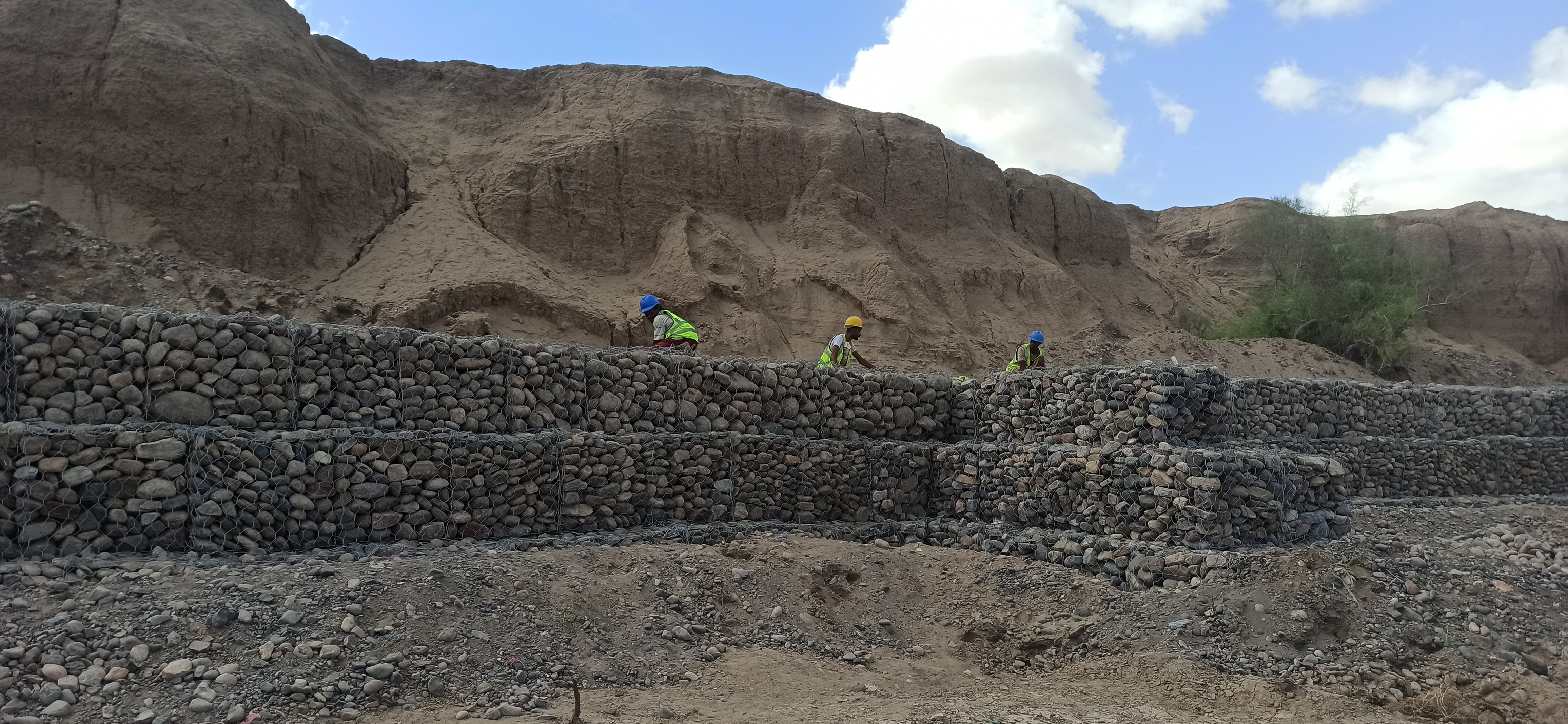Through its agricultural interventions, the Public Works Project plays a vital role in mitigating the adverse effects of climate change on Yemeni farmers.
The implemented projects are designed to enhance livelihoods and ensure dignified living conditions, while also strengthening communities’ ability to withstand the growing climate-related challenges to food security.
In 2024, the project successfully constructed approximately 5,000 linear meters of protective walls for agricultural lands and 3,000 meters of irrigation channels. These efforts directly benefited around 4,000 hectares of farmland across Yemen.
These interventions have helped reduce the impact of harsh climatic conditions and improve community resilience, particularly during the rainy season. They have ensured more reliable access to food for vulnerable families and demonstrated the critical role of agricultural infrastructure in addressing climate change and supporting affected populations.
The deterioration of traditional watercourses and rainwater drainage systems—essential for directing water to farmland—had previously led to widespread soil erosion and the loss of farmers’ primary source of income. The newly implemented agricultural projects have successfully protected farmland from floods and erosion, reduced economic losses, and expanded the area of cultivable land by preserving soil integrity.
These outcomes have strengthened community confidence in the Project’s interventions, which have created a more enabling environment for agriculture, safeguarded land from degradation, and boosted agricultural productivity and land use.




